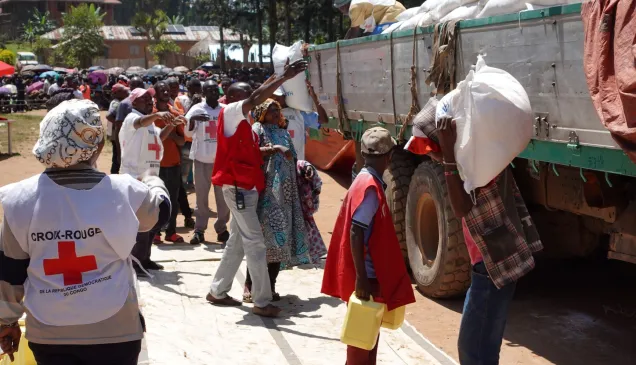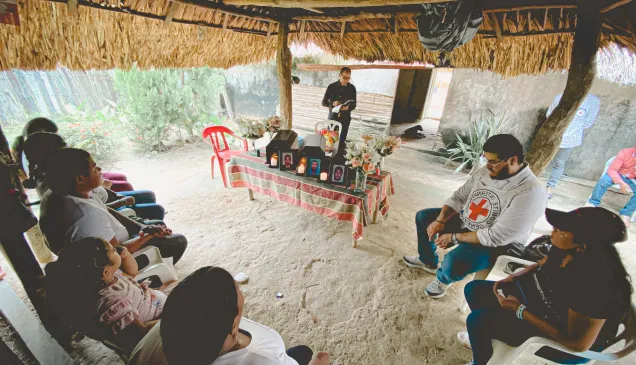As the conflict in Afghanistan continues to take a heavy toll on civilians, the ICRC is carrying on with its work to improve the protection of medical services.
"We are concerned by the effects the increased fighting in the summer had on civilians and medical services," said Anthony Dalziel, the ICRC's head of operations for South Asia. "In a volatile environment such as the one in Afghanistan, it is especially important that people providing or receiving medical attention be spared at all times."
Under international humanitarian law, civilians, medical workers and health facilities must be spared so that health care can be provided for those who need it. At the same time, the wounded and the sick must have safe access to medical services. New ways of protecting health-care personnel and facilities, medical transports and patients were discussed in September at the United Nations General Assembly in New York and again this month at a regional conference of the International Red Cross and Red Crescent Movement held in Beijing.
"We have observed an increased number of attacks on medical personnel and more frequent obstruction of their work in the past few months," said Monica Zanarelli, acting head of the ICRC delegation in Kabul. "Civilians have sometimes been prevented from reaching health-care facilities during fighting. We are calling on all parties to treat medical personnel with special restraint and to spare the wounded."
The ICRC, working alone or in partnership with the Afghan Red Crescent Society, is carrying on with its humanitarian activities in Afghanistan, where it responds to the needs of displaced people, assists communities facing economic difficulty, makes sure that safe drinking water and health care are available to everyone, helps family members separated by conflict to maintain contact, monitors the treatment and living conditions of detainees and performs other humanitarian tasks.
Between July and September, the ICRC:
- carried out 28 visits to 23 places of detention that together were holding some 9,150 detainees;
- worked closely with the Afghan Red Crescent Society to collect over 470 and deliver almost 460 Red Cross messages (brief personal written messages to relatives made otherwise unreachable by the conflict), most of which were exchanged between detainees and their families;
- continued to support Mirwais and Sheberghan hospitals, which together admitted some 10,480 patients to their surgical, medical, and obstetrics and gynaecology wards, treated over 62,420 outpatients and performed some 2,980 operations;
- gave first-aid training to some 685 weapon bearers (including members of the armed opposition), medical personnel and taxi drivers (who often transport wounded people from the front lines to health facilities), and to 92 others;
- supported three veterinary assistants from communities in central Afghanistan in their efforts to deworm animals and otherwise care for over 2,250 head of cattle;
- improved the water supply and sanitary conditions for 31,400 detainees in seven places of detention;
- continued to provide support for 48 Afghan Red Crescent clinics, which gave outpatient consultations for 201,390 people and administered 119,830 doses of vaccines against common childhood diseases and polio.
For further information, please contact:
Marek Resich, ICRC Kabul, tel: +93 707 740 526
Rafiullah Stanikzai, ICRC Kabul, tel: +93 788 308 908
Anastasia Isyuk, ICRC Geneva, tel: +41 22 730 30 23 or +41 79 251 93 02



